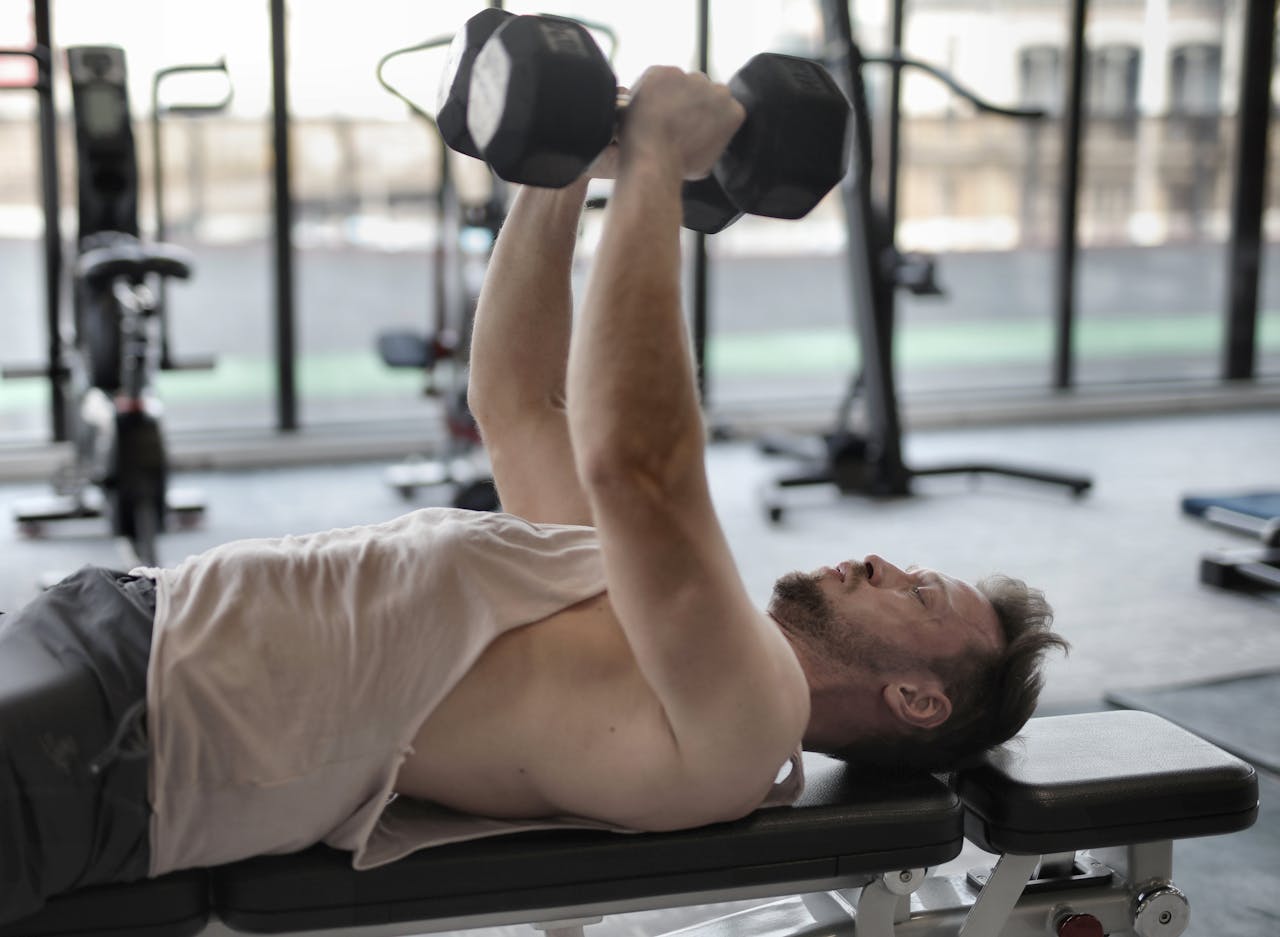When it comes to men’s health and self-esteem, the size of the penis often emerges as a topic of significant concern and curiosity. Men frequently seek ways to enhance their penis size, yet one of the most overlooked factors could be something as straightforward as weight loss. In this article, we will explore the relationship between weight loss and perceived changes in penis size, the underlying physiology, and what men can realistically expect when embarking on a weight loss journey.

The Influence of Fat Distribution
Penile size is a function of both the length and girth of the organ, but perceived size can be significantly influenced by external factors, particularly surrounding body fat. It is essential to understand that adipose tissue (body fat) can obscure the visible length of the penis.
For many men, a significant amount of fat accumulation occurs in the pubic area, which can lead to the appearance of a smaller penis. In fact, studies have shown that an increase in body mass index (BMI) can lead to a decrease in perceived penis size. When men lose weight, particularly in the abdominal and pubic regions, they may experience a more pronounced visibility of their penis. This is not an increase in the actual size of the penis; rather, it is a decrease in the amount of fat that surrounds it.
The Role of Pubic Fat Pad
The pubic fat pad is the layer of fat that sits above the penis. When this area is well-developed, it can effectively cause the penis to appear shorter than it is. A study published in the Journal of Urology found that weight loss can lead to a reduction in the size of the pubic fat pad, thereby making the penis appear longer. For men with obesity, substantial weight loss can create a more favorable ratio of visible penis length to total body size.
Men who lose a significant amount of weight may notice that their penis looks larger simply because they are seeing more of it. This is particularly true for individuals who may have previously carried excess weight for a long time.
Psychosocial Factors
Beyond the physiological aspects, weight loss can also enhance a person’s self-esteem and body image, which can lead to increased confidence in sexual situations. Studies have shown that increased self-esteem can improve sexual performance and satisfaction. For men who have struggled with body image, losing weight may alter perceptions of their masculinity, confidence, and sexual desirability, ultimately affecting their sexual experiences.
The Impact of Weight Loss on Sexual Health
Losing weight goes hand-in-hand with numerous health benefits that can positively impact sexual health. Here are some critical areas in which weight loss can enhance the sexual experience:
Improved Cardiovascular Health
Excess weight can lead to numerous cardiovascular problems, including high blood pressure and heart disease. These conditions can impair blood flow, which is essential for erectile function. By losing weight, many men can improve their cardiovascular health, leading to better blood flow and, consequently, improved erectile function.
Increased Testosterone Levels
Obesity is often associated with lower levels of172402# Does Losing Weight Make Your Penis Bigger?
When it comes to concerns about body image, weight, and sexual health, few topics evoke as much curiosity and debate as the relationship between weight loss and penis size. Many men ponder the question: does losing weight make your penis appear larger? While there’s no straightforward answer, the relationship between body weight and perceived penis size is rooted in anatomical, physiological, and psychological factors. This article aims to dissect these aspects in a professional manner.
Understanding Anatomy
Before diving into the nuances of weight loss and penis size, it’s essential to understand the anatomy involved. The human penis consists of internal and external components:
- Shaft: The visible part, primarily composed of erectile tissues that fill with blood during arousal.
- Root: The portion of the penis that anchors it to the pelvic bones and is largely hidden beneath the pubic fat.
The appearance of the penis can be significantly affected by the amount of fat surrounding the pubic area. For men carrying excess weight, fat accumulation around the pubic mound can obscure the base of the penis, making it appear smaller than it actually is.
The Impact of Weight Loss on Perceived Penis Size
1. Reduction of Pubic Fat
One of the most significant effects of weight loss is the reduction in body fat percentage. Men with a higher body mass index (BMI) often have more adipose tissue around the pubic region, which can cause the penis to appear smaller. As a man loses weight, particularly in the abdominal and pubic areas, the fat surrounding the base of the penis decreases. This can have a profound effect on how the penis is perceived.
For example, losing a significant amount of weight may result in a noticeable “uncovering” effect, where more of the shaft becomes visible due to the reduction in surrounding fat. In this sense, the penis may appear larger not because its actual size has changed, but because more of it is now visible.
2. Improved Blood Flow and Arousal
Moreover, losing weight can have a positive impact on overall health, including cardiovascular health. Improved circulation can lead to better blood flow, which is crucial for erectile function. Men who lose weight may experience stronger and longer-lasting erections, which can create an impression of increased size during arousal.
3. Body Image and Confidence
The psychological effects of weight loss should not be overlooked. Achieving weight loss goals can significantly boost a man’s self-esteem and body image. Increased confidence may lead to enhanced sexual performance and a more assertive approach to intimacy, potentially creating the perception of increased size through improved sexual experiences.
4. Hormonal Balance
Excess weight can lead to hormonal imbalances, including lower testosterone levels, which can affect libido and erectile function. Weight loss can help restore hormonal levels, which might improve sexual health. Increased testosterone can lead to greater libido and sexual satisfaction, contributing to a more fulfilling sexual experience – albeit without any actual change in penis size.
Weight Loss and Sexual Health
Health Benefits Beyond the Scales
The health benefits of maintaining a healthy weight are well-documented, impacting various health systems and, consequently, sexual health:
- Reduced Risk of Erectile Dysfunction (ED): Studies indicate that obesity significantly increases the risk of ED. Losing weight can mitigate some of this risk, partly through improved blood flow and better cardiovascular health.
- Increased Stamina and Energy: Weighing less often correlates with increased physical fitness and stamina, contributing to a more active and satisfying sex life. This improved physical condition can foster better intimacy, further enhancing perceptions of size.
Risks of Unsafe Weight Loss Methods
While exploring the connection between weight loss and penis size improvements, it is crucial to emphasize that the journey should be approached safely. Many quick-fix diets and extreme weight loss methods can have detrimental effects on health, leading to muscle loss, nutritional deficiencies, and further challenges that may negatively impact sexual performance and health.
Healthy Weight Loss Strategies
- Balanced Diet: Focus on whole foods, with an emphasis on fruits, vegetables, lean proteins, and whole grains. A balanced diet supports overall health and weight loss.
- Regular Exercise: Combining cardiovascular exercises with strength training can maximize fat loss and improve overall fitness, leading to better health outcomes.
- Mental Health Matters: Consider integrating mental health strategies like mindfulness and therapy, especially if body image issues impact self-esteem and sexual health.
- Consult Professionals: A healthcare professional or dietitian can provide personalized advice and support during weight-loss journeys.
Conclusion
In summary, losing weight can create the appearance of a larger penis mainly due to the reduction of surrounding fat and improved blood flow. The confidence gained from weight loss can enhance sexual experiences, further influencing perceived size. However, it’s vital to remember that the size of the penis does not change significantly; rather, it’s more about perceptions brought forth by physical changes in the body.
While concern over penis size is common, it’s crucial to focus on overall health and well-being. Balancing weight, improving sexual health, and building confidence can lead to more satisfying sexual experiences without getting caught up in the numbers on a scale or the tape measure. Ultimately, good health—both physical and mental—will trump any fleeting anxieties over size.


